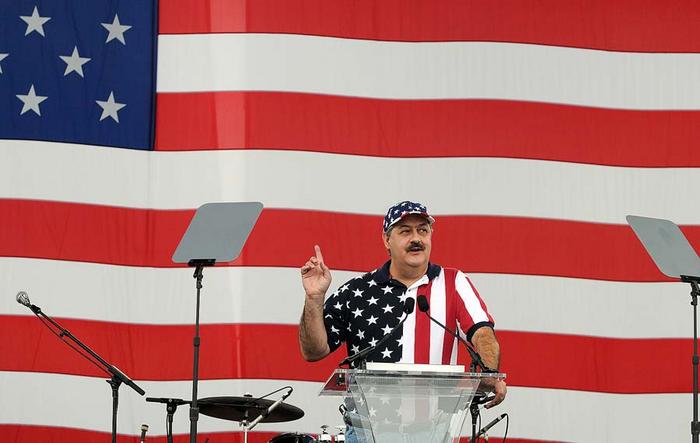Blankenship’s politics, and looking ahead to trial
September 28, 2015 by Ken Ward Jr.
Gazette-Mail file photo by Chip Ellis
Late last week, U.S. District Judge Irene Berger denied the latest effort by former Massey Energy CEO Don Blankenship to delay his day in court, making it seem even more likely that Blankenship will face trial starting with jury selection that’s scheduled to begin Thursday.
West Virginia Public Broadcasting kicked off a new trial podcast, and the first episode — featuring our friend Howard Berkes of NPR and Charleston lawyer Mike Hissam (a former prosecutor in Booth Goodwin’s office who worked in parts of the Upper Big Branch case) — provides some great commentary to help listeners prepare for the trial.
Meanwhile, my colleague David Gutman gave Gazette-Mail readers a glimpse at the long political shadow cast by Blankenship, with this story on Sunday:
Before last year’s elections, before he was indicted, one year before he would go to trial, West Virginia Democrats warned that Don Blankenship was trying to buy the state.
“Why are out-of-state billionaires trying to buy West Virginia?” one flier from the state party blared, next to pictures of Blankenship and the Koch brothers. “Only you can stop them.”
For Blankenship, at least, there’s no proof that allegation was true, and as a political strategy, it certainly didn’t work.
There is no record of Blankenship making any political donations in West Virginia in 2014, and Republicans made unprecedented gains — winning the statehouse for the first time in eight decades and winning every available congressional seat.
But those gains were engineered, in part, by Blankenship’s longtime personal aides and political operatives, who continue to hold outsize influence in state Republican politics. And, as Blankenship faces three felonies and up to 30 years in jail in perhaps the highest profile trial in West Virginia history, he still casts a long shadow over West Virginia politics.
Blankenship’s favored policies — lower taxes, anti-union measures, pro-business legal reform and the easing of coal industry regulations — have mostly been implemented, in part because as the state has shifted toward the GOP his ex-lieutenants have been successful in helping Republican candidates get elected.
There’s more pre-trial coverage to come.
We’re still waiting for Judge Berger to rule on a variety of things, including most importantly the “motions in limine” (see here, here and here) that will decide what is and isn’t allowed as evidence in the trial. And the judge has yet to provide many details about how she plans to handle jury selection, or if the public will be able to see what goes on during that process. Also pending in Blankenship’s latest effort to convince the judge to move the trial from Southern West Virginia.

 Subscribe to the Coal Tattoo
Subscribe to the Coal Tattoo
